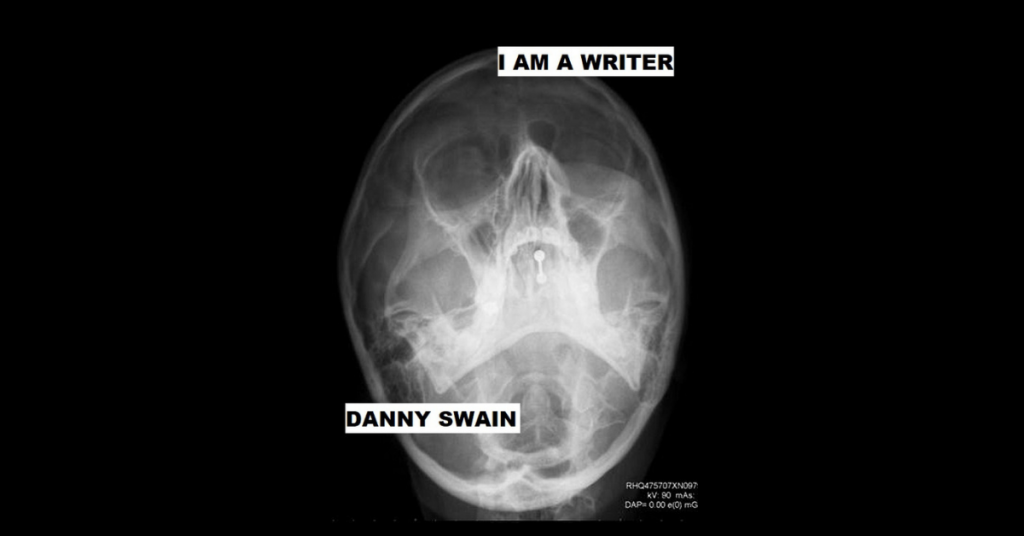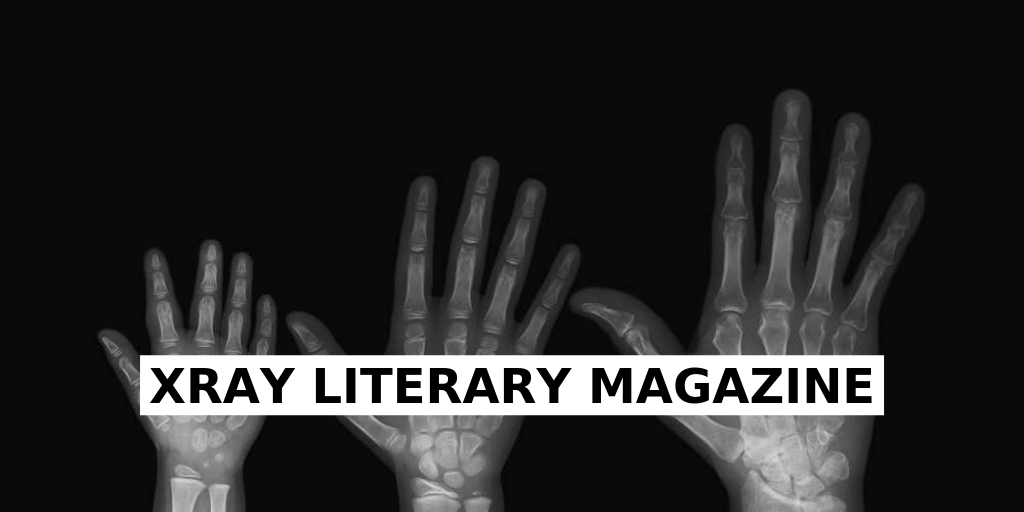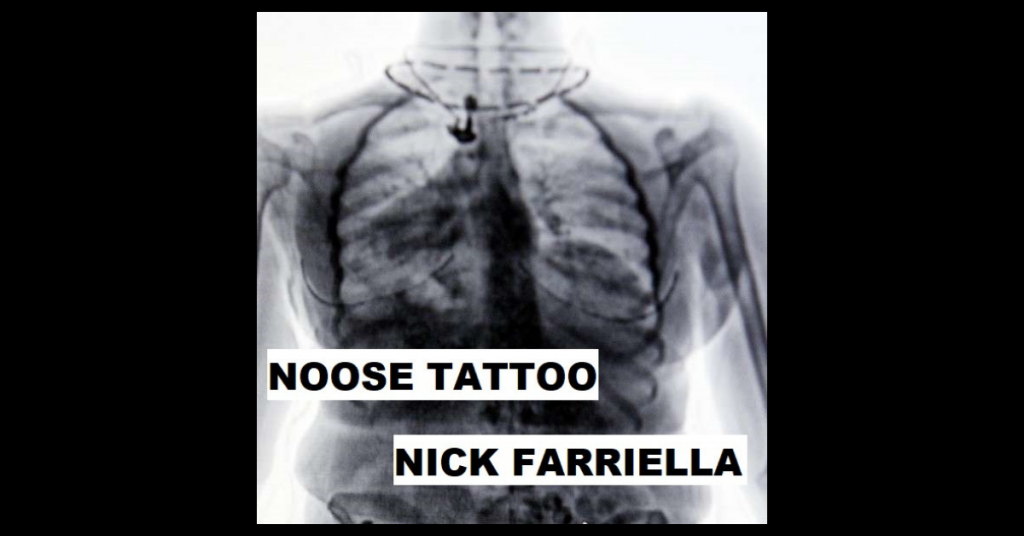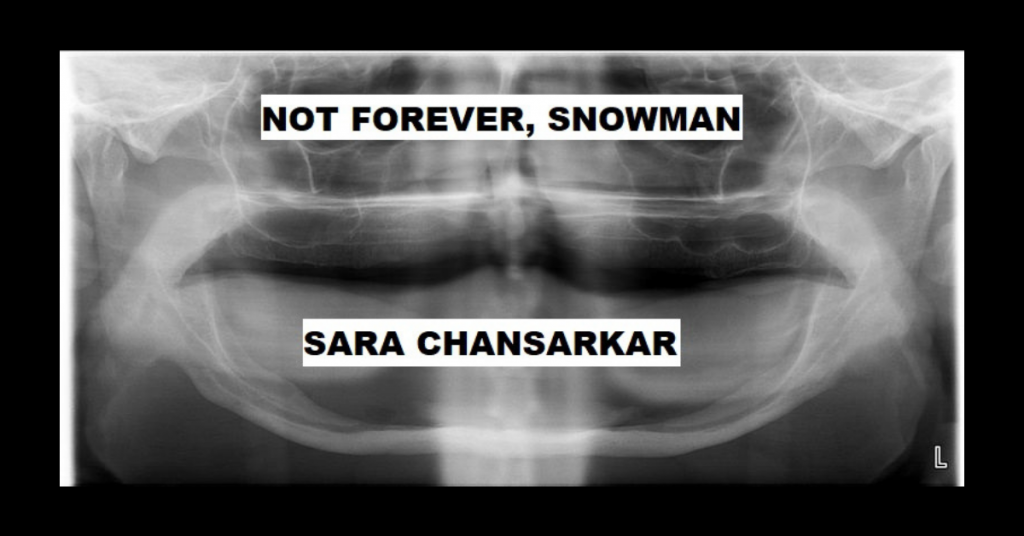Pat sat in his boxers on the edge of the bed, digging into his ear with a Q-tip. When Barb finally turned off the hairdryer in the bathroom, he called to her.
“I sure wish you hadn’ta done this.”
“What’s that you say?” asked Barb, entering the room in her slip.
“I said,” he emphasized, “I wish you hadn’ta done this.”
“Oh,” she swatted the air, “they’re nice enough folks.”
“I don’t even know why they’re staying here. They got that goddamn travel trailer just sitting there, wasting away.”
“Well, they’ve been on the road a long time. Mitzi said every once in a while Bob likes to splurge and stay at a motel. Besides, they like us.”
Pat and Barb, Mitzi and Bob, met the day before at a craps table in Reno. Pat and Bob, self-proclaimed bourbon aficionados, got increasingly drunk trying to outdo one another, and became excessively and unintentionally chummy in the process. Barb and Mitzi looked on, neither of them surprised.
“And anyway, you’re the one that told them where we were staying,” added Barb.
“Another thing,” said Pat. “How is it we got room two, and they got room seven?”
“What difference does it make?” asked Barb, slipping into her “fancy” dress.
“It makes a difference,” he emphasized, “because seven is a winner, and two craps out. Besides, their room is closer to the pool.”
“Pat, will you just get dressed?”
Meanwhile, in room seven, Bob lay on the bed, dressed and with his shoes on, watching scrambled porno on the motel TV.
“Bob!” declared Mitzi when she noticed.
“Ope,” he pointed at the set, “I think that was a boob!” and laughed.
“Come on,” she said, sitting on the edge of the bed. “Zip me up.”
“With pleasure!”
“You know,” said Mitzi, “I was reading some brochures in the tub. That lake that the restaurant is on, it’s fake.”
“Whattaya mean ‘fake?’ How can a lake be fake? Hey, I made a rhyme!”
“I mean it wasn’t always there. It’s man-made.”
“Of course it’s man-made. We’re in the desert!”
Mitzi, on route back to the bathroom to attach her eyelashes, stopped short and turned to Bob. “Do you think they really like us?” she asked.
“Who?”
“Who! The Krendalls. Pat and Barb.”
“Sure, why not?” asked Bob, and then took a sip of his Jim Beam, which he two-handedly perched upon his chest.
“Well, Barb seems genuine. But I get the distinct feeling Pat is all show. I mean, what did you think of the way he told that cocktail waitress at Circus Circus he was a bullfighter? I mean, really!”
“Ahh, she knew he was pulling her leg.”
“I don’t know….”
A rapid knock came at the door.
“That’s them,” said Bob, gulping down his whisky.
“I’m not ready!” cried Mitzi, closing herself in the bathroom. “Entertain them!” she yelled through the door.
“Will do!” said Bob, pouring himself a quick half-finger of Jim Beam and downing it.
Outside room seven, Bob found Pat and Barb standing on the welcome mat that read: “Relax Inn.”
“Howdy, fine people.” Pat and Barb offered their hellos. “Don’t you look nice, Barb! And you clean up pretty good, too!” he told Pat.
“Where’s Mitzi?” asked Barb. “I hope she’s not ill.”
“Just putting on her face. She’ll be out in a jiff.”
The three of them then stood in awkward silence, looking at each other, the ground, the moon, the back of a hand where a small scab rested just below the middle finger. Finally, Barb said: “I’m hungry!” and Bob agreed and Pat nodded. None too soon, Mitzi emerged, her right upper eyelash affixed noticeably higher than the left.
“I’m hungry!” she declared, and everyone agreed.
At the restaurant, they got a table on the lake. “I reserved this one special,” Pat told them. (Later he would complain to Barb that Bob took the best seat, the one that looked most fully at the water.) Pat and Bob ordered their bourbons: Pat’s on the rocks, Bob’s neat. The women each ordered a glass of riesling.
“Anyone having an appetizer?” inquired Mitzi.
“I’m having the prime rib,” said Pat.
“She’s asking about appetizers, Pat,” said Barb.
“So, I’m just saying, I’m” – he emphasized – “having the prime rib.”
“You know, that sounds pretty good,” said Bob. “I’ll have the prime rib, too. And a baked potato with the works!”
“I think I’ll start with a side salad,” Barb told Mitzi.
“Okay, I’ll do that, too,” Mitzi told Barb.
“So, how do you like room seven?” Pat asked Bob.
“Fine, fine,” said Bob.
“Close to the pool,” said Pat.
“Yeh, yeh,” said Bob.
“Seven,” said Pat. “That’s a good number.”
“Pat….” warned Barb.
“I’m just saying, seven is a good number,” Pat emphasized.
The waiter arrived with their drinks, and the table fell silent. They all sipped, and just as Pat’s lips parted to begin again, Mitzi jumped in.
“It’s fake,” she told them.
“Beg your pardon?” said Pat.
“The lake. This lake. It’s fake.”
“What she means is,” explained Bob, “is that it’s man-made. Well of course it’s man-made, we’re in the desert!” Bob laughed.
“No,” insisted Mitzi. “That’s not what I mean. I mean it is fake. You can sit here and pretend otherwise if you like, but I know perfectly well. It’s fake.”
Again, the table fell silent. Mitzi lifted her riesling and took a tentative sip. Pat looked at her from across the table. He pointed to his own right eye.
“It’s higher,” Pat said to Mitzi. “That one, on the right, it’s higher than the left.” Bob caught onto Pat’s point before Mitzi did.
“Now wait one cotton-picking moment there, Pat.”
Pat thought for a second and took a quick glance at Barb, and then stopped pointing at his own right eye and placed his hand on the table. No one said anything for a while, and then finally, Barb broke the silence:
“Boy, I tell you what, I really am starved!”





